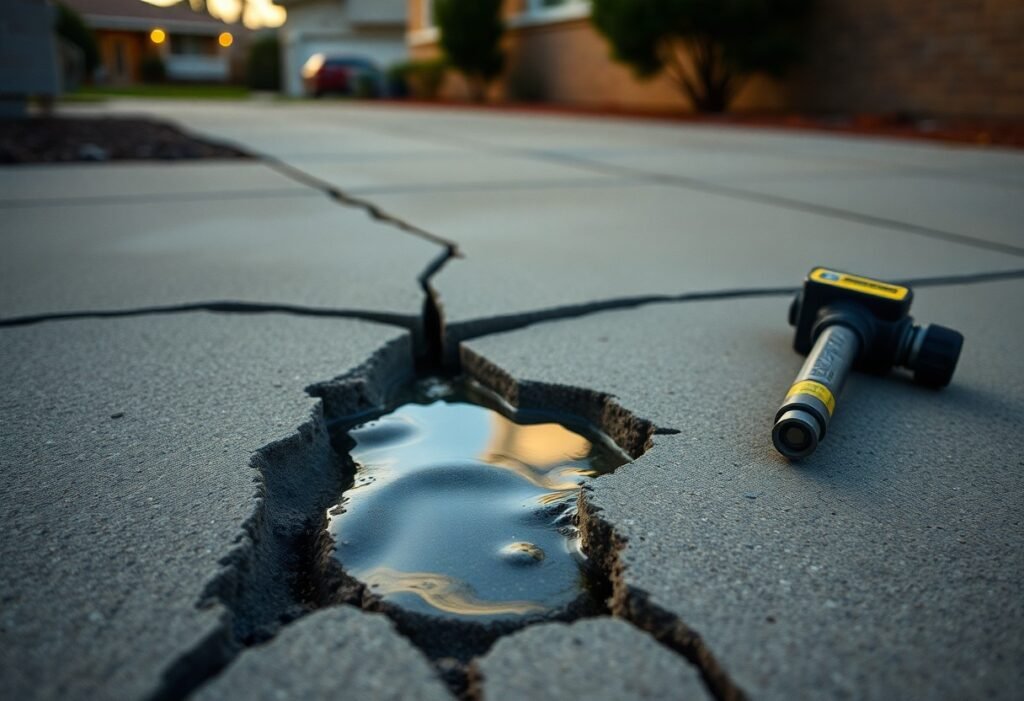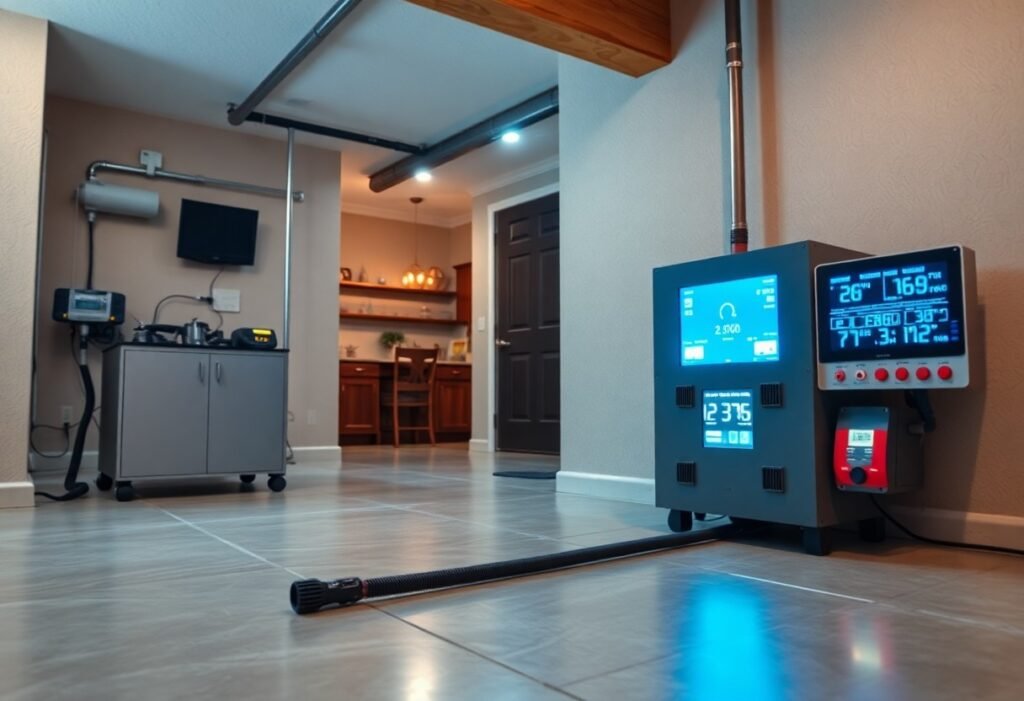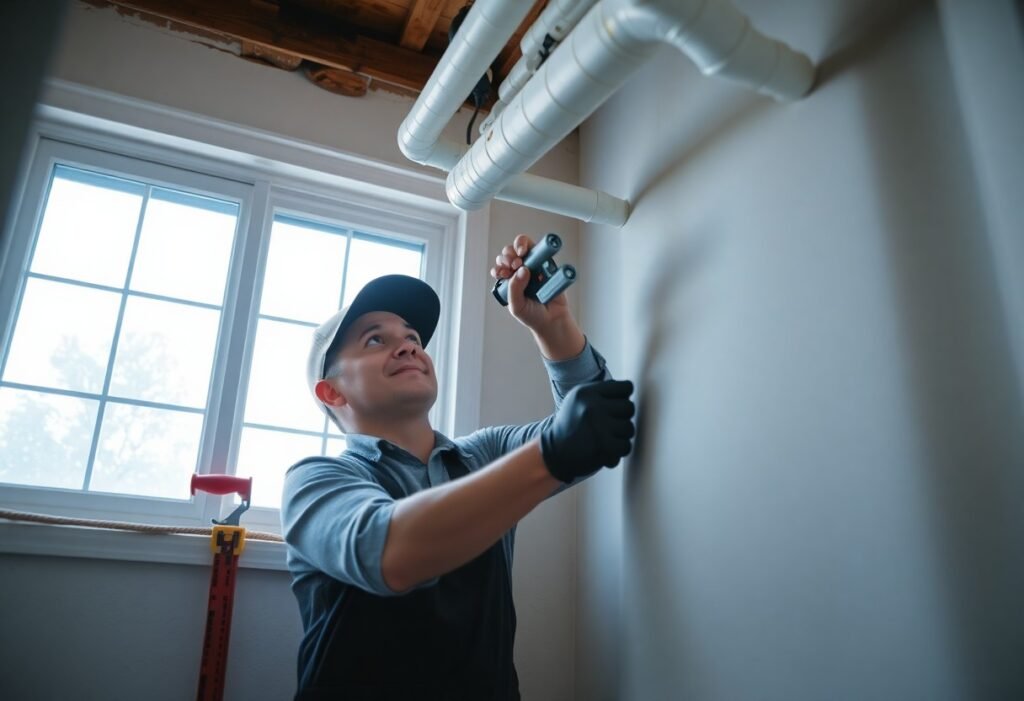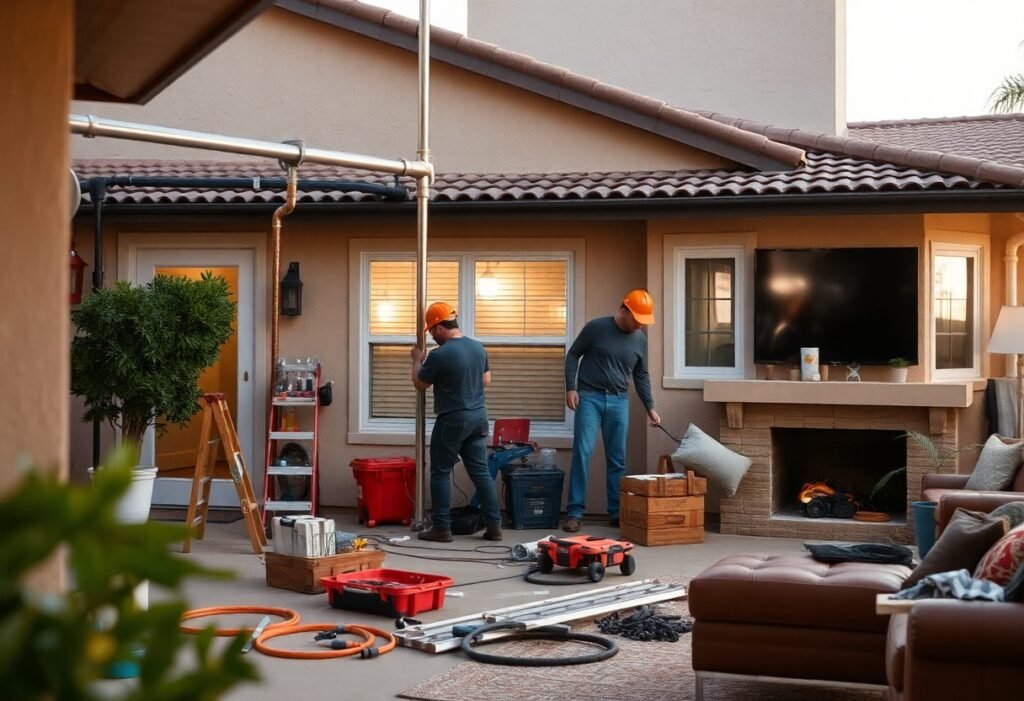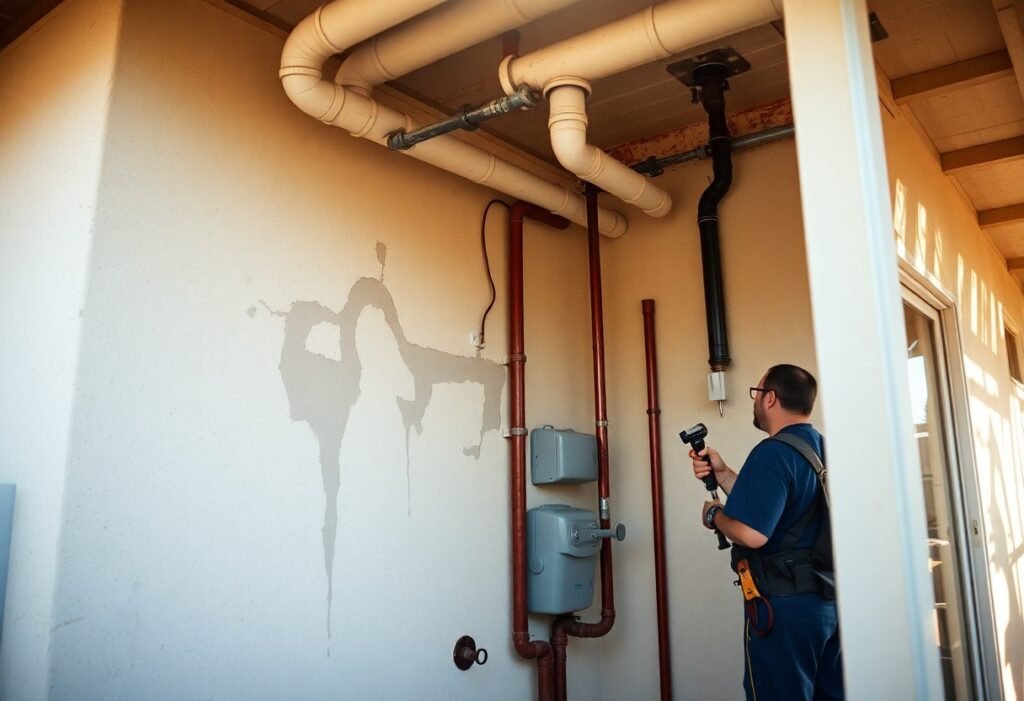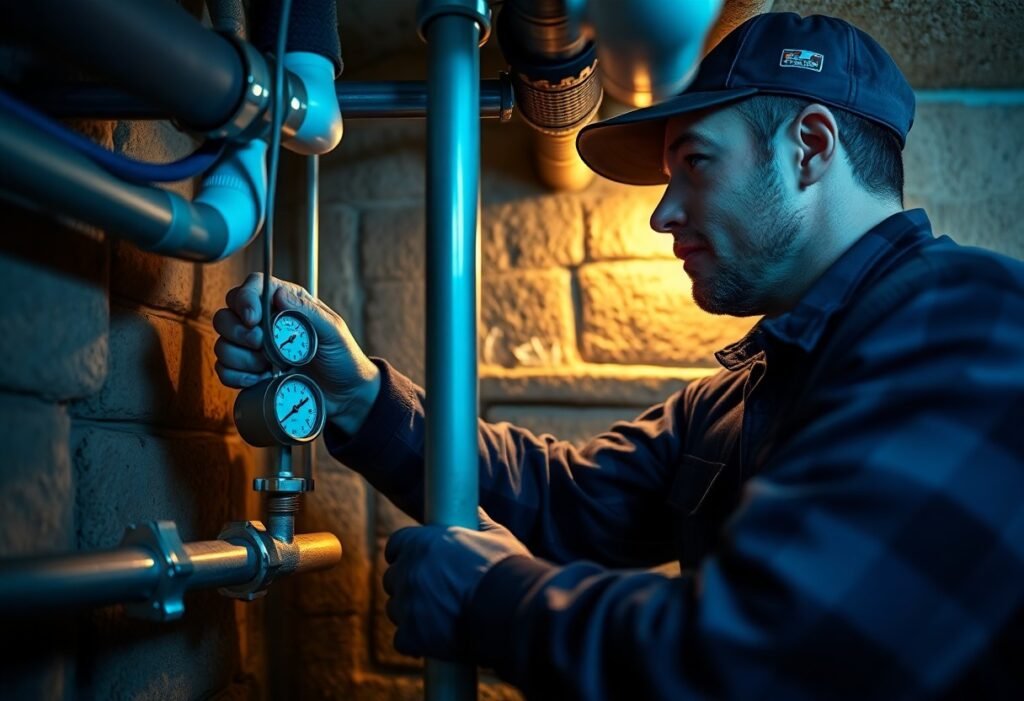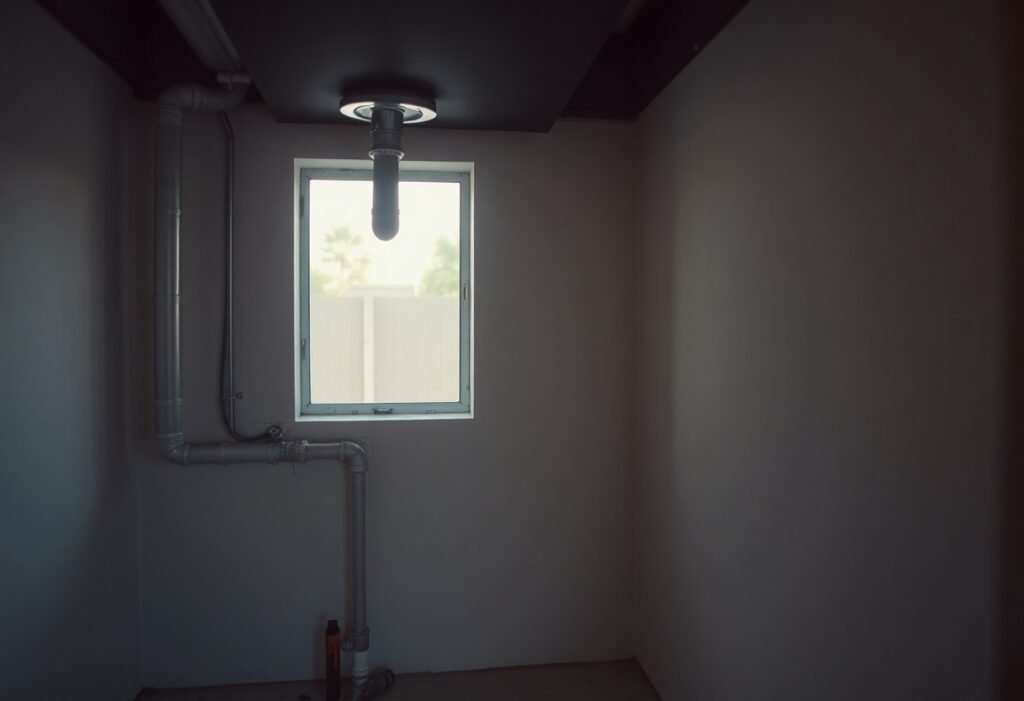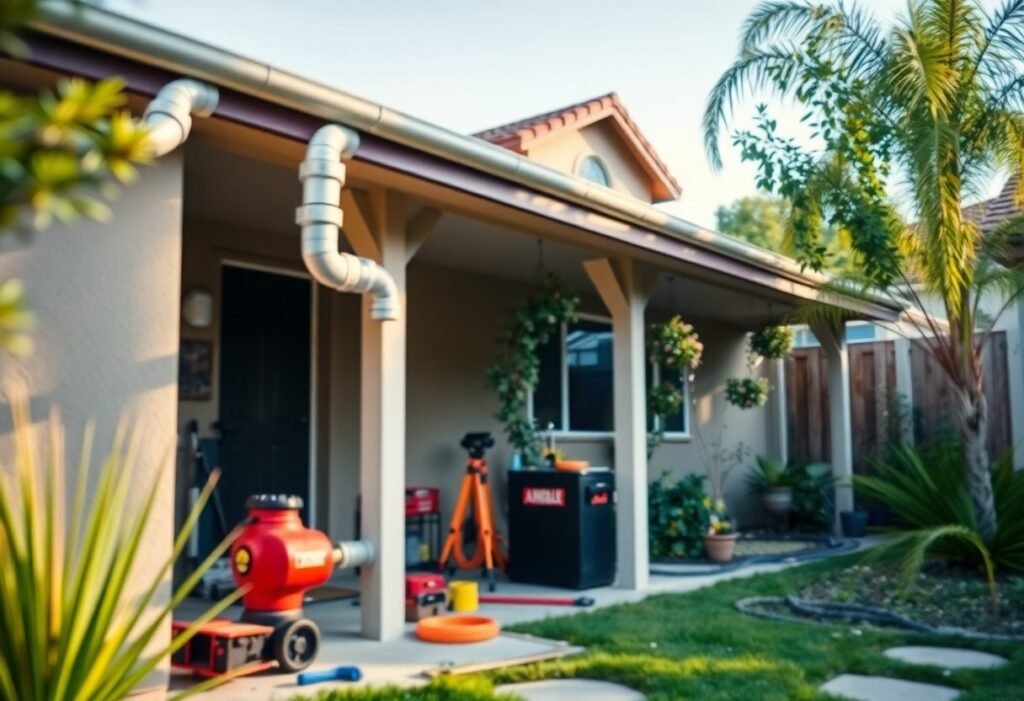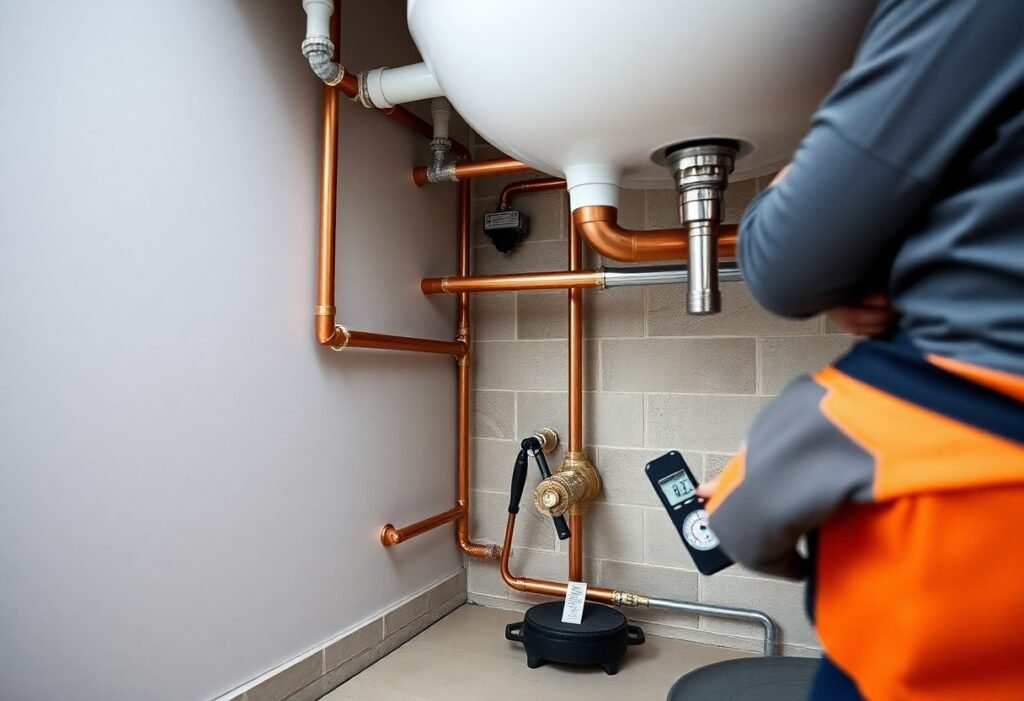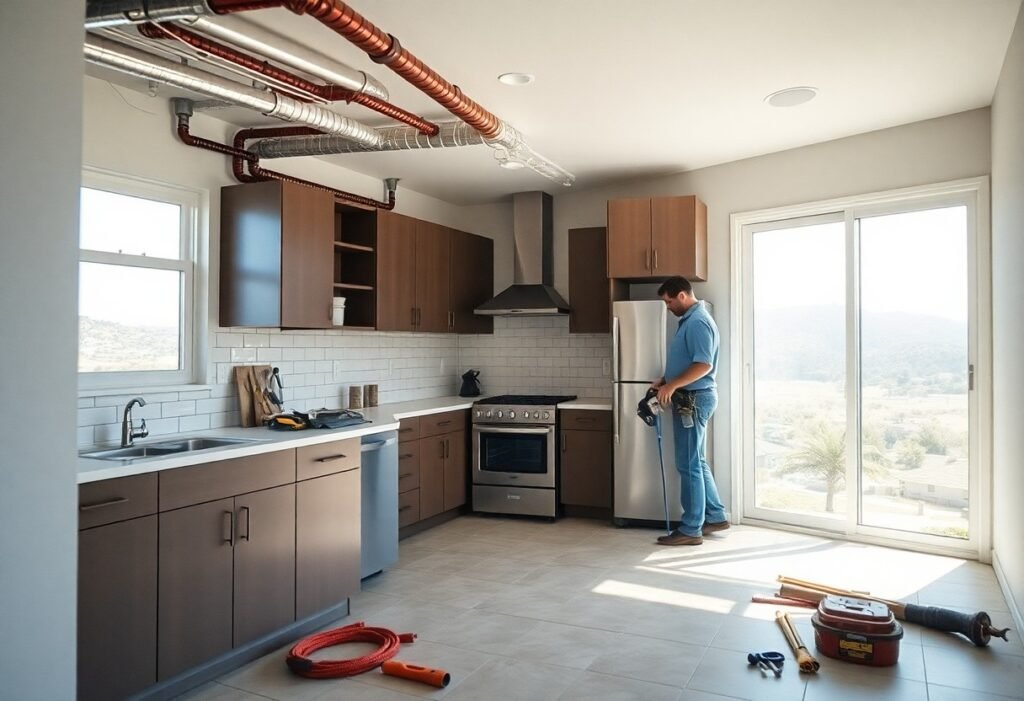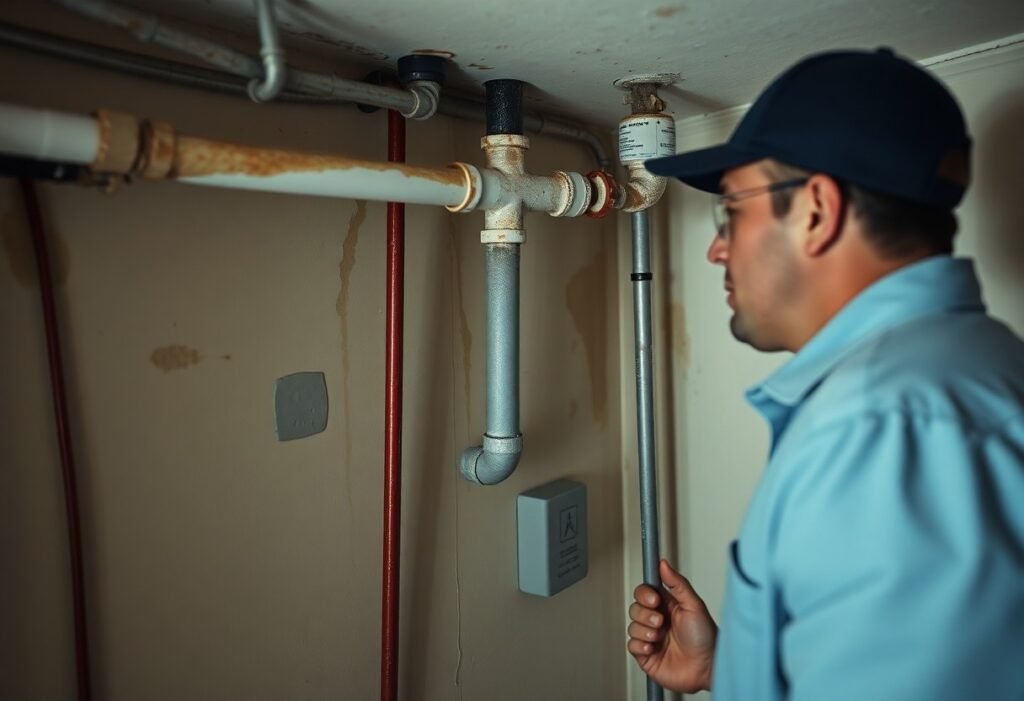Garden Grove, CA – What to Expect During a Whole House Repiping Project
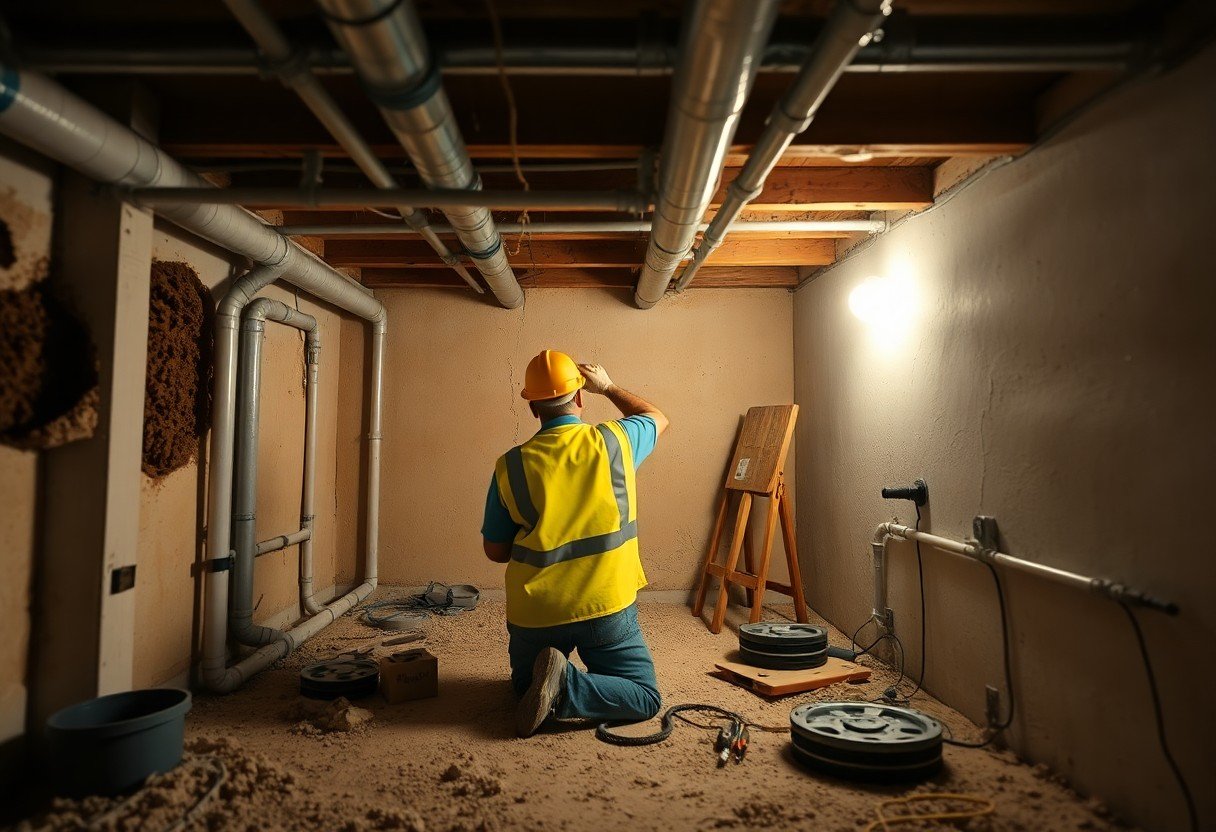
There’s a lot to consider when you decide to undertake a whole house repiping project in Garden Grove, CA. In this informative guide, you’ll learn what challenges and benefits you may encounter during the process, helping you prepare for this significant investment in your home. From understanding the materials used to the steps involved in the project, you will gain valuable insights that can help minimize disruptions and maximize the effectiveness of your repiping efforts, ensuring a healthier plumbing system for years to come.
Key Takeaways:
- Understanding the process: A whole house repiping project involves replacing old plumbing pipes with new ones, which may include the removal of walls or ceilings in some areas. This requires planning and preparation to minimize disruption.
- Timing and duration: The completion of a repiping project can vary based on the size of the home and the complexity of the plumbing system. Homeowners should allocate sufficient time for the project, often ranging from a few days to a couple of weeks.
- Cost considerations: Budgeting for a whole house repiping project is imperative. Costs can fluctuate based on materials, labor, and any unforeseen issues that may arise during construction. It’s advisable to get multiple estimates before committing.
Signs That Indicate You Need a Whole House Repiping
Identifying the right moment for a whole house repiping can save you from extensive damage and costly repairs. Look for signs like frequent leaks, discoloration in your water, or low water pressure. If you notice any of these symptoms, consult with a plumbing professional to assess the condition of your pipes. Ignoring warning signs can lead to more severe issues, so acting proactively is your best strategy.
Common Warning Signs of Pipe Failure
Pay attention to unusual occurrences in your plumbing that may signal impending pipe failure. For instance, if you experience repeated leaks, see visible signs of corrosion on exposed pipes, or detect a persistent musty odor, you should take these issues seriously. These indicators suggest that your plumbing system may be deteriorating, prompting the need for a comprehensive repiping assessment.
Impact of Aging Infrastructure on Water Quality
As pipes age, they can significantly affect your water quality, leading to potential health hazards. Old pipes may leach harmful substances like lead or contribute to the growth of bacteria, making your drinking water unsafe. Common issues like sediment buildup further compromise the clarity and safety of your water supply, emphasizing the importance of monitoring your plumbing system.
According to the Environmental Protection Agency, the use of lead pipes in the plumbing infrastructure can pose serious health risks, particularly for vulnerable populations like children and pregnant women. The presence of lead in drinking water can cause a range of developmental issues and health complications. The gradual deterioration of older pipes means that contaminants can enter your water supply unnoticed. If your home is equipped with aging infrastructure, investing in a repiping project not only enhances water quality but also ensures peace of mind regarding what you and your family are consuming daily.
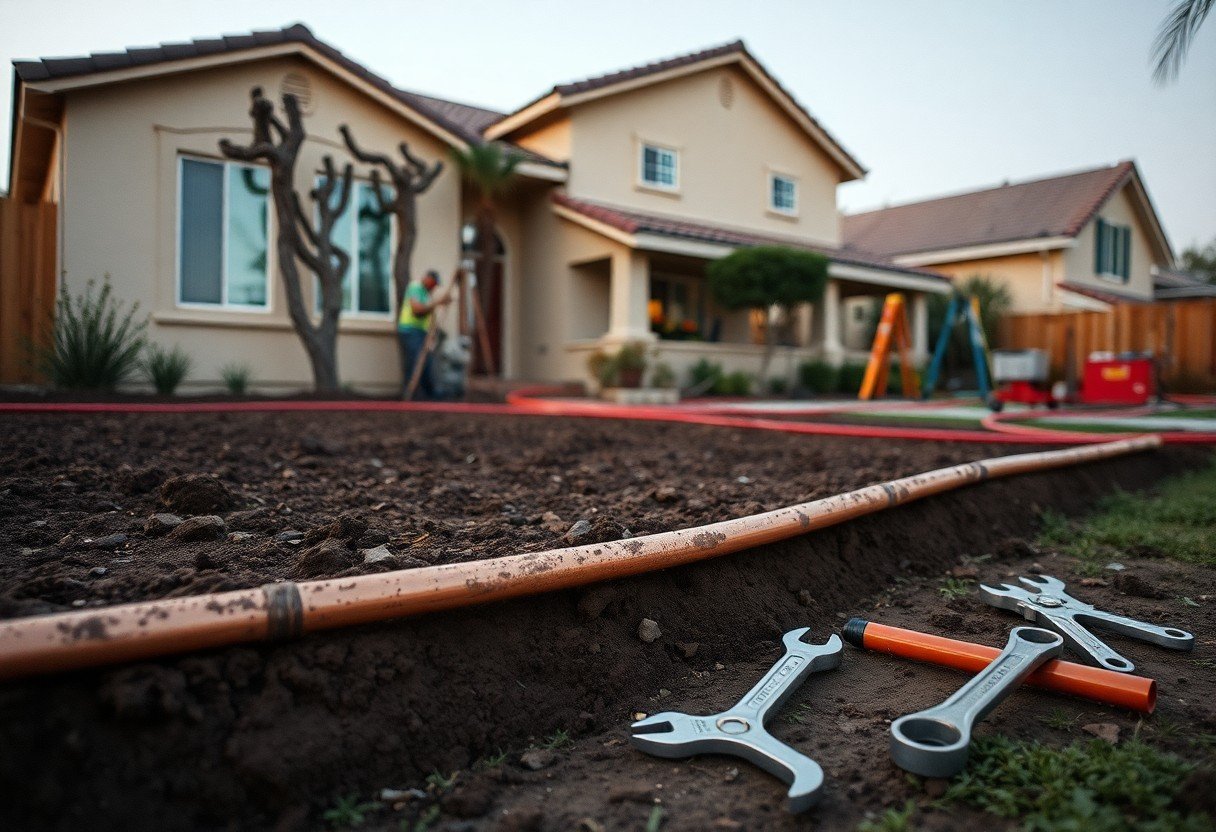
The Repiping Process: What You Need to Know
Undergoing a whole house repiping can seem daunting, but understanding the process helps you prepare effectively. A professional team will generally assess your home’s plumbing system, decide on materials suitable for your needs, and execute the installation while ensuring minimal disruption. For reliable Re-piping Services in Garden Grove, CA You Can Rely On, look for licensed plumbers who communicate clearly and provide updates throughout the process. This clarity ensures you stay informed every step of the way.
Phases of a Whole House Repiping Project
The repiping project typically includes several phases: initial consultation and assessment, planning and material selection, and the actual installation. During the consultation, plumbers thoroughly evaluate your existing plumbing systems to determine the extent of work required. Once the needed materials are approved, the installation phase begins, involving the removal of old pipes and replacement with new, durable materials, often completed with precision to minimize wall and floor damage.
Timeline Expectations and Factors Influencing Duration
The duration of a repiping project can vary, typically ranging from 1 to 3 days for a standard-sized home. Several factors impact this timeline, including the size of your home, the complexity of the existing plumbing, and accessibility. Homes with multiple stories or intricate plumbing configurations may require additional time. After discussing your specific situation with your contractor, you’ll gain a clearer understanding of the schedule you can expect.
- Size of the home
- Plumbing complexity
- Accessibility
- Weather conditions
- Contractor’s availability
Moreover, homeowner preparedness significantly influences the timeline. Ensuring that areas around plumbing fixtures are clear for the technicians can expedite the work process. Delays often happen if furniture or appliances obstruct access. After coordinating effectively with your team, you can ensure a smoother, swifter project completion.
- Homeowner preparedness
- Accessibility of plumbing
- Coordination with the contractor
- Expected disruptions
- Replacement materials timing
Choosing the Right Materials for Repiping
Determining the best materials for your repiping project influences both performance and longevity of your plumbing system. Options such as copper, PEX, and CPVC each provide unique benefits and potential drawbacks. Evaluating these materials based on your specific needs will ensure a successful repiping experience that meets your household demands.
Comparing Copper, PEX, and CPVC: Benefits and Drawbacks
| Material | Benefits and Drawbacks |
|---|---|
| Copper | Long-lasting and resistant to bacteria; however, it is expensive and can corrode over time. |
| PEX | Flexible, resistant to scale and chlorine, easier to install; downside is that it can’t be exposed to UV light. |
| CPVC | Cost-effective and resistant to corrosion; however, it may become brittle in extreme temperatures. |
Local Regulations and Considerations for Material Selection
Your choice of plumbing materials is often shaped by local building codes and regulations. Compliance with these standards is imperative for ensuring the safety and efficiency of your plumbing system, while also avoiding potential fines or issues during inspections. You’ll need to check with your local municipality in Garden Grove to verify what materials meet legal criteria and are approved for residential use.
Local building departments frequently update regulations based on emerging technologies and safety standards, and these can influence material selection in a repiping project. For example, California has strict guidelines concerning water conservation and the use of lead-free materials, requiring homeowners to utilize pipes that minimize water wastage and inhibit harmful substances. Being informed on these local guidelines can help align your project with what is necessary, ensuring your investment in repiping adheres to both safety and environmental standards.
Budgeting for a Whole House Repiping Project
Embarking on a whole house repiping project requires a solid budget. Costs can vary widely based on factors such as the size of your home, the materials you choose, and the complexity of the plumbing systems. Accurate budgeting allows you to avoid unexpected financial stress during the process, ensuring that your repiping project goes smoothly.
Breakdown of Potential Costs and Hidden Fees
Your project’s price might include materials, labor, permits, and possible upgrades. On average, homeowners can expect to spend between $4,000 and $15,000 for a complete repiping. However, hidden fees such as emergency repairs, extensive wall repairs, and unexpected pipe-related issues can increase your costs significantly. Always ask your contractor for a detailed estimate to account for any potential surprises.
Financing Options and Insurance Coverage
When budgeting for repiping, explore various financing options. Many companies offer flexible payment plans or financing models tailored for home improvement projects. Additionally, your homeowner’s insurance might partially cover the costs if your current plumbing system suffered damage or leakage. Check your policy and consult your insurance provider for clarification.
Some financing options include personal loans or home equity lines of credit, which can provide lower interest rates compared to credit cards. Additionally, local government programs may offer grants for renovations that improve plumbing efficiency. Depending on your insurance plan, coverage will vary significantly, so it’s wise to review your policy details carefully to maximize the financial assistance available to you during the repiping process. Understanding your financing and insurance options gives you the upper hand in managing expenses effectively.
Minimizing Disruption During Your Repiping Project
Implementing strategies to minimize disruption during your whole house repiping can significantly enhance your experience. Start by scheduling the project at a time that aligns with your family’s routine. Professionals can set clear boundaries in your home and will keep the work area organized, which helps maintain your living space’s functionality. Expect some noise and minor interruptions, but with a well-planned approach, most inconveniences can be mitigated.
Tips for Preparing Your Home and Family
Preparing your home and family for the repiping process can lead to a smoother transition. Consider the following tips:
- Discuss the project timeline with your family to set expectations.
- Clear the work areas to provide easy access for contractors.
- Create a temporary living space with necessary items easily accessible.
- Inform neighbors about potential noises during the project.
Knowing these preparations can help maintain a sense of normalcy during the process.
Communicating with Contractors: Setting Expectations
Clear communication with contractors is vital for a successful repiping experience. Discuss your expectations upfront, including timelines, specific needs, and potential concerns. A well-defined scope of work ensures that both you and the contractors are aligned, minimizing misunderstandings. Regular updates during the project keep you informed about progress and any changes that may arise. Don’t hesitate to ask questions or seek clarification, as this helps both parties feel more confident and satisfied with the project’s direction.
By maintaining open lines of communication, you can ensure everything proceeds smoothly. After discussing your initial thoughts, follow up with the team throughout the project to monitor progress and address any concerns. You might consider setting specific check-in times to discuss updates. Additionally, sharing your future goals for the plumbing systems can help guide contractor decisions that directly impact your home’s functionality. A proactive approach to communication ensures your needs are prioritized while questions or issues can be resolved efficiently.
Summing up
The whole house repiping project in Garden Grove, CA, is a significant investment in the longevity and efficiency of your plumbing system. You can expect a thorough assessment of your current pipes, professional installation of new materials, and a commitment to minimal disruption during the process. By choosing experienced professionals, you will benefit from enhanced water quality, reduced leaks, and overall peace of mind. With proper planning and execution, this project will ultimately improve your home’s efficiency and value.
FAQ
Q: What are the signs that my home in Garden Grove, CA, needs a whole house repiping?
A: There are several indicators that might suggest your home requires repiping. Common signs include frequent leaks or water damage, low water pressure, rusty or discolored water, and a noticeable drop in water quality. If you notice mold or mildew due to excessive moisture, or if your plumbing is older than 30 years, it’s also advisable to consider a repiping project. Consulting with a plumbing professional can help assess your specific situation and decide on the best course of action.
Q: How long does a whole house repiping project typically take in Garden Grove?
A: The duration of a whole house repiping project can vary based on the size of your home and the complexity of the plumbing system. Generally, homeowners can expect the project to be completed within 2 to 5 days. Factors such as the layout of the plumbing, accessibility of pipes, and the type of materials chosen can influence the timeline. It’s best to discuss your specific needs with your plumbing contractor to get a more accurate estimate for your project.
Q: What costs should I anticipate for a whole house repiping in Garden Grove, CA?
A: The cost of a whole house repiping project can depend on various factors, including the size of the home, the extent of plumbing that needs replacement, and the materials selected (like copper, PEX, or PVC). On average, homeowners in Garden Grove can expect costs to range from $5,000 to $15,000. It’s advisable to get quotes from multiple contractors to compare pricing and understand the scope of work included in each estimate. Ensure the quotes cover labor, materials, and any required permits to avoid unexpected expenses.

